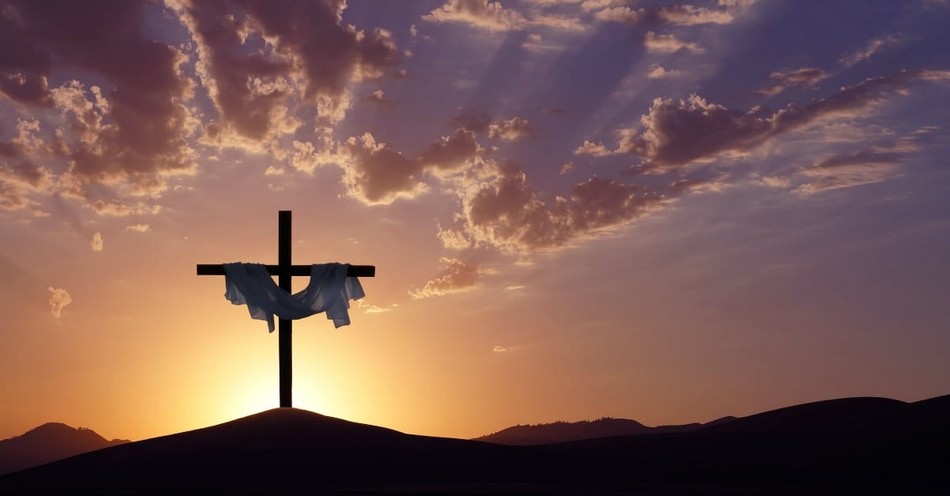Before writing this article, I hadn't heard of the hymn "My Song is Love Unknown," but I'm grateful for its preservation. As we will see today, the lyrics are thought-provoking and help us remember timeless Christian truths.
What Are the Lyrics to 'My Song Is Love Unknown'?
1 My song is love unknown–
my Savior's love to me;
love to the loveless shown,
that they might lovely be.
Oh, who am I, that for my sake
my Lord should take frail flesh and die?2 He came from His blest throne
salvation to bestow;
but men made strange, and none
the longed for Christ would know.
But oh, my Friend, my Friend indeed,
who at my need His life did spend!3 Sometimes they strew His way,
and His sweet praises sing;
resounding all the day
hosannas to their King.
Then "Crucify!" is all their breath,
and for His death they thirst and cry.4 Why, what hath my Lord done?
What makes this rage and spite?
He made the lame to run;
He gave the blind their sight.
Sweet injuries! Yet they at these
themselves displease,
and 'gainst Him rise.5 They rise, and needs will have
my dear Lord made away.
A murderer they save;
the Prince of Life they slay.
Yet cheerful He to suff'ring goes,
that He His foes from thence might free.6 In life, no house, no home
my Lord on earth might have;
in death, no friendly tomb
but what a stranger gave.
What may I say? Heav'n was His home;
but mine the tomb wherein He lay.7 Here might I stay and sing–
no story so divine!
Never was love, dear King,
never was grief like Thine.
This is my Friend, in whose sweet praise
I all my days could gladly spend.
Who Wrote 'My Song Is Love Unknown'?
Samuel Crossman was born in Suffolk, England, in 1664. He received a Bachelor of Divinity at Pembroke College and served both Anglican and Puritan churches. He sympathized with the Puritan cause, attending the 1661 Savoy Conference, which sought to revise the Book of Common Prayer to include both Puritans and Anglicans. The attempt was unsuccessful, and under the 1662 Act of Uniformity, Crossman, along with 2,000 other Anglican priests, was ejected from the Church of England due to his affiliation with Puritans. Crossman renounced and was ordained in 1665, serving as royal chaplain and later becoming Dean of Bristol Cathedral.
Initially, "My Song is Love Unknown" was written as devotional poetry. It was later published in The Young Man's Meditation, a short book of poems. Two years after Crossman died in 1684, "My Song is Love Unknown" was published as a hymn in the Anglican Hymn Book. Galatians 6:14 headed the seven stanzas: "God forbid that I should glory, save in the Cross of our Lord Jesus Christ."
Because this hymn retells the life and sacrifice of Christ, it's often sung on Good Friday as “Love Unknown,” composed by John Ireland in 1925. Ireland is known for bringing the hymn back to life after years of obscurity.
What Did Samuel Crossman Write Besides 'My Song Is Love Unknown'?
In addition to "My Song is Love Unknown," Crossman also published devotional poems or hymns, such as "Jerusalem on High," "Sweet Place," "Farewell of a Minister," and "My Life's a Shade, My Days."
Crossman's published works include:
- The Young Man's Monitor included sermons and a small collection of nine hymns, including "My Song is Love Unknown," which were bound separately in the back of the book. This section was entitled The Young Man's Meditation or Some Few Sacred Poems Upon Select Subjects, and Scriptures.
- The Young Man's Monitor was initially published in 1664. In 1685, a later edition was published under the initials of S.C. In 1695, another edition appeared under a new title, The Young Man's Calling.
- The Last Testimony and Declaration of the Reverend Samuel Crossman, D.D. and Dean of Bristoll: Setting Forth His Dutiful and True Affection to the Church of England as by Law Established, published between 1683 and 1684.
In addition to lyrical and published works, Crossman delivered sermons as the Dean of Bristol. The sermons we have records of include:
- An untitled sermon delivered on April 23, 1680, before the Gentlemen of the Artillery Company.
- Two sermons preached in the Cathedral Church of Bristol in 1681.
- "An Humble Plea for the Quiet Rest of the Ark" preached before the Lord Mayor of London on February 5, 1682.
- An untitled sermon delivered in Christ's Church in Bristol on August 1, 1676.
Does 'My Song Is Love Unknown' Reference Other Poems?
Crossman's deep regard for George Herbert's work is evident through his work, and rightfully so. Herbert was an English poet and priest known for his devotional poems and servant's heart in caring for his parishioners. His popular collection, The Temple, includes 160 of his poems and was posthumously published in 1633.
The opening line of "My Song is Love Unknown" is reminiscent of Herbert's poem "Love Unknown" in how the author finds comfort in knowing his debt is paid by Christ despite his sins.
Herbert's poem "The Sacrifice" reveals another connection to "The Song of Love Unknown," with the difference being the perspective. In his poem, Herbert writes from the perspective of Christ. Crossman leans toward the perspective of an observer.
In stanza 7 of "The Song of Love Unknown," we see a distinct connection with Herbert's The Temple text, "Never ever grief like mine," where Crossman writes, "Never was grief like thine." Other examples of how Herbert's masterful use of prose influenced Crossman in the hymn "The Song of Love Unknown" are how he refers to the crowds and their cries to crucify Jesus (stanza 3) and how they freed a murderer and slay the Prince of Life (stanza 5).
What Can We Learn from 'My Song Is Love Unknown' Today?
"My Song is Love Unknown" provides timeless lessons for the believer who surveys the Cross and its wonders. While the Cross’s wonders are so great we cannot fully comprehend them, we can understand a few things about Jesus's atoning sacrifice. Each stanza of Crossman’s hymn explores a snippet of Jesus’s life. Here are some notable lessons we can learn from various stanzas and how we can apply those lessons.
Stanza 2 – His Incarnation. Jesus left His throne to bestow salvation through His death and resurrection. Many turn away with no longing for Christ in their hearts, but for those whose hearts turn toward Him as Lord and Savior, He calls friend (John 15:15).
Application: The invitation to turn toward Jesus still stands today, and He longs to call you a friend.
Stanza 3 – Palm Sunday. The crowd sang sweet praises as Jesus made His way to Jerusalem, entering the city on a donkey. Hours later, praises turned to cries for Jesus' crucifixion.
Application: Emotions are fickle. They can praise with the mouth while the heart remains dry, hardened to Christ. We can't trust our feelings, high or low, but we can remain steadfast in God's truth.
Stanza 4 – His miracles. In Matthew 11:5-6, an imprisoned John sent his disciples to ask Jesus, "Are you the one who is to come, or should we expect someone else?"
Jesus responds by saying:
- The blind will see.
- The lame will walk.
- Lepers will be clean.
- The dead will rise.
However, Despite His miracles, the people did not believe Jesus.
In verse 4 of "The Song of Love Unknown," Crossman asks, "Why, what hath my Lord done? What makes this rage and spite?"
Application: We should not be surprised by the hate furled at Jesus and those who identify with Him in today's culture (Matthew 24).
Stanza 5 – The Unfair Trade. Jesus hung on a cross between two criminals. The specificity of their crimes is not shared in scripture, but Crossman uses the word murder. Nevertheless, two people deserved to be there. One did not. When asked which to release, the crowd chose a criminal instead of Jesus, the Prince of Life. Still, knowing His death would bring freedom, even to His foes, Jesus endured the Cross, joyfully scorning its shame (Hebrews 12:2-3).
Application: Jesus' purpose was clear, and He never strayed from the Father's plan. Nothing was fair about the trade, but what the enemy meant for evil, God meant it for good. We, as Christians, must stay focused on our purpose in sharing the Gospel with a world that is anything but fair. Confident in God's sovereign plans, we can endure all things with a deep abiding joy, following in the footsteps of Jesus, the Prince of Life.
Stanza 6: In the Tomb. Jesus never owned a house or felt at home because heaven was His home.
Our home was the tomb, not Jesus'. He chose to exchange His life for ours on the Cross, rising from the dead to be seated at the right hand of God, exchanging our darkness for His light and our sin for His forgiveness.
Application: We, like Jesus, are to consider heaven our home, aligning our perspective on time, money, and energy with His.
Samuel Crossman's love for Jesus takes center stage in stanza 7 of "My Song is Love Unknown":
Here might I stay and sing–
no story so divine!
Never was love, dear King,
never was grief like Thine.
This is my Friend, in whose sweet praise
I all my days could gladly spend.
Lord, may it be so.
Photo Credit: © GettyImages/mbolina





